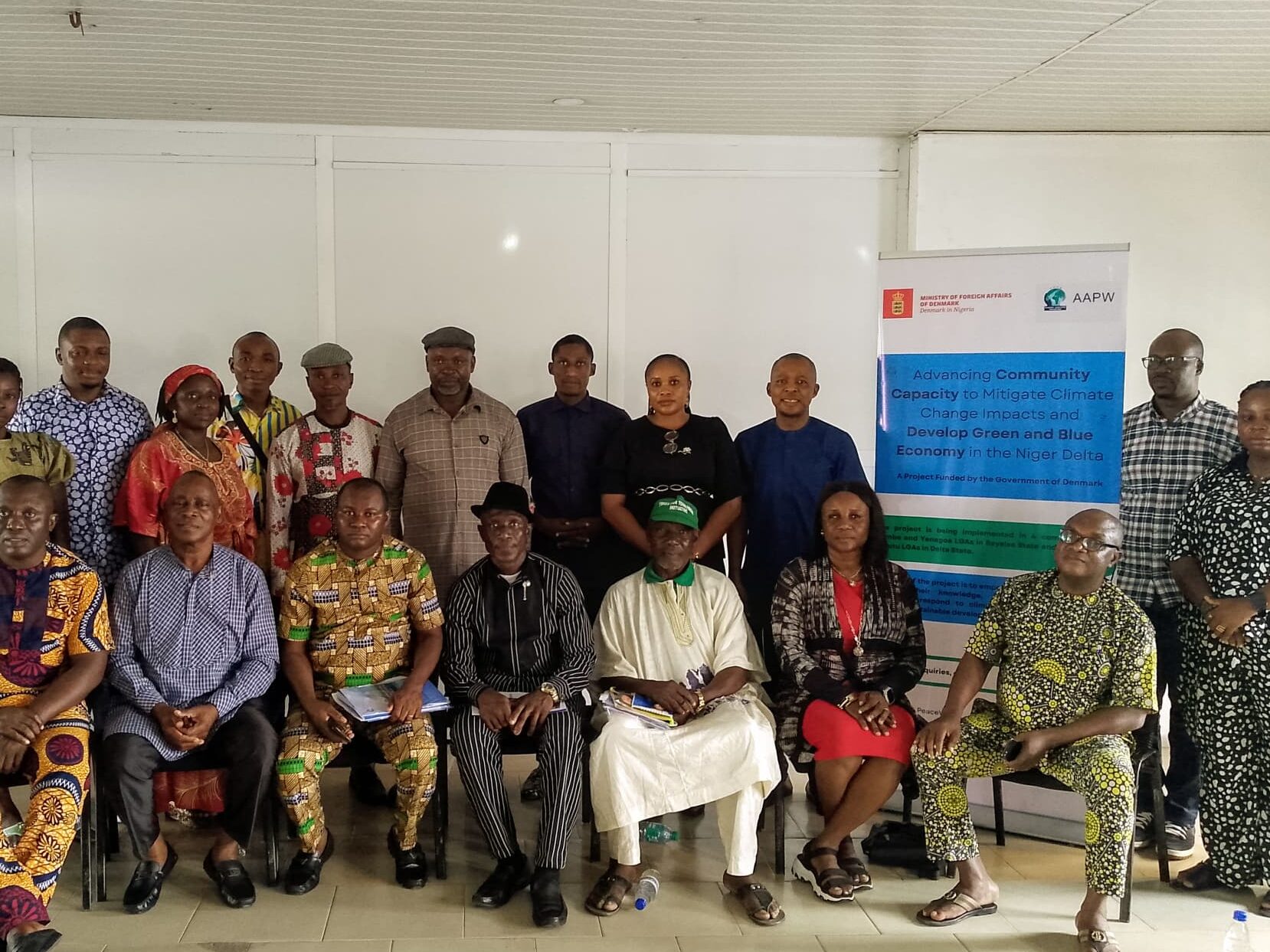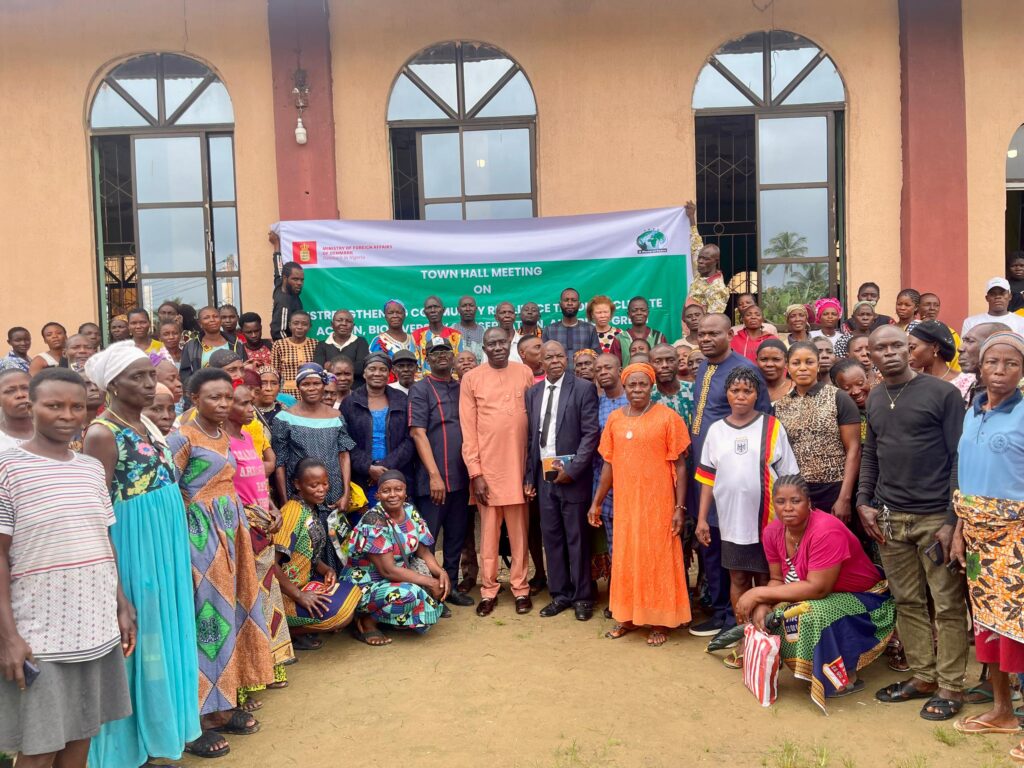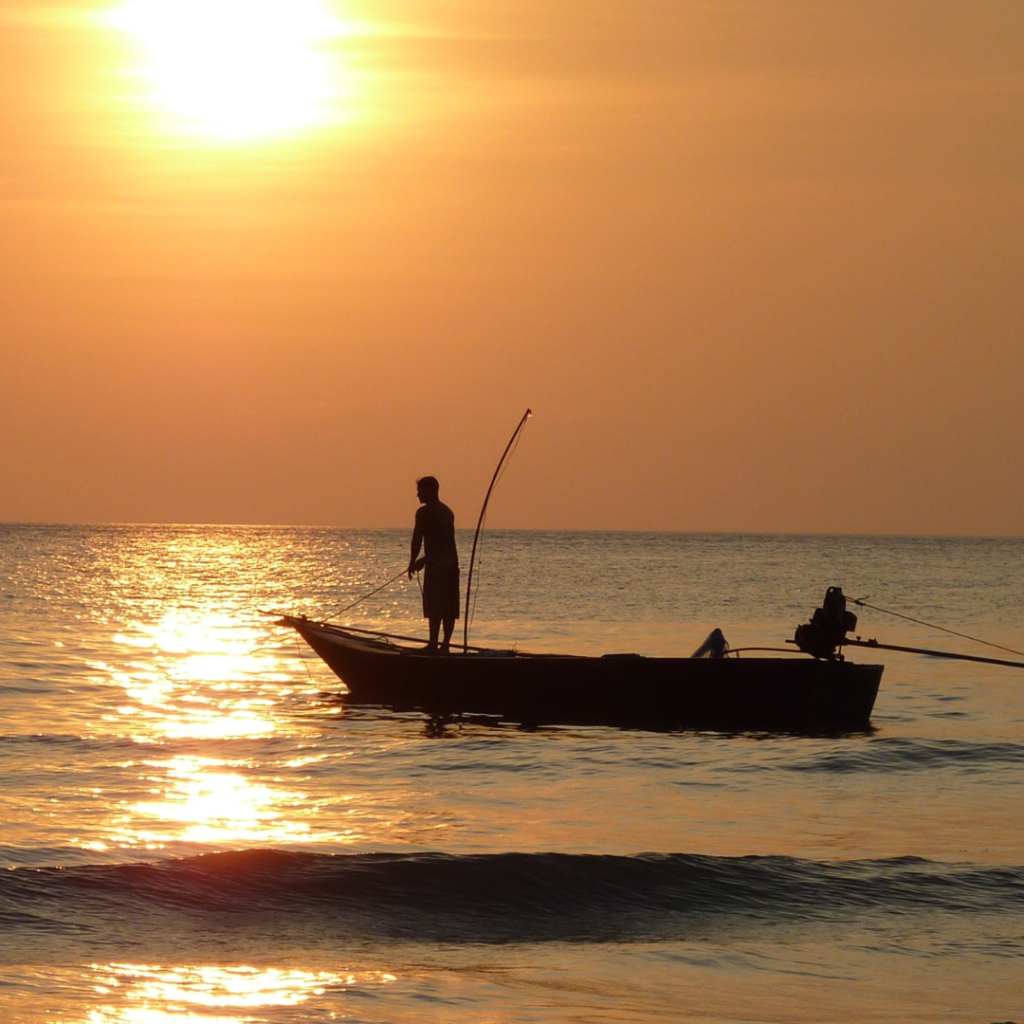As part of the ongoing efforts to strengthen community capacities in Bayelsa and Delta states, network meetings were recently held under the “Advancing Community Capacity to Mitigate Climate Change and Develop Green and Blue Economy” project. These meetings brought together stakeholders, policymakers, community leaders, and environmental advocates, with the shared goal of addressing climate change challenges and fostering sustainable development through green and blue economies.
The network is critical in coordinating local responses to climate change by creating a platform for knowledge sharing and collaboration. It connects various agriculture, environment, fisheries, and biodiversity sectors to develop cohesive strategies for community resilience and environmental sustainability. These meetings enable stakeholders to align on common goals, exchange best practices, and influence policy changes at both local and state levels.
The network’s focus on community-driven solutions ensures that the voices and needs of the communities most affected by climate change are prioritized. This approach also emphasizes the importance of local ownership of environmental policies and initiatives, creating a pathway for long-term success.
The third quarter of 2024 saw significant milestones, reflecting the progress and impact the project is making in both states. Some of the key updates discussed include:
- Completed 24 radio talk shows: The talk shows focused on climate change mitigation strategies and raised awareness in Bayelsa and Delta states.
- Farmer training conducted: Local farmers were educated on critical issues such as nematodes, fish mortality, and stem drying caused by extreme heat waves. This training is crucial for equipping farmers with the knowledge to adapt to the changing climate and protect their livelihoods.
At the network meeting in Bayelsa State, several critical policies and bills were highlighted, including:
- Waste Management Policy (Ministry of Environment)
- Bush Burning Policy (Ministry of Agriculture)
- Bayelsa State Policy on Bush Burning (Ministry of Agriculture)
- Anti-burning committee (Ministry of Environment and Ministry of Agriculture)
- Laws against logging of trees (Bio-diversity Conservation Committee)
- Climate Change policy of Bayelsa (Ministry of Environment)
- Bayelsa Excessive Fisheries Bill (Ministry of Agriculture)
- Policy on Blue and Marine Economy (in its development stage)
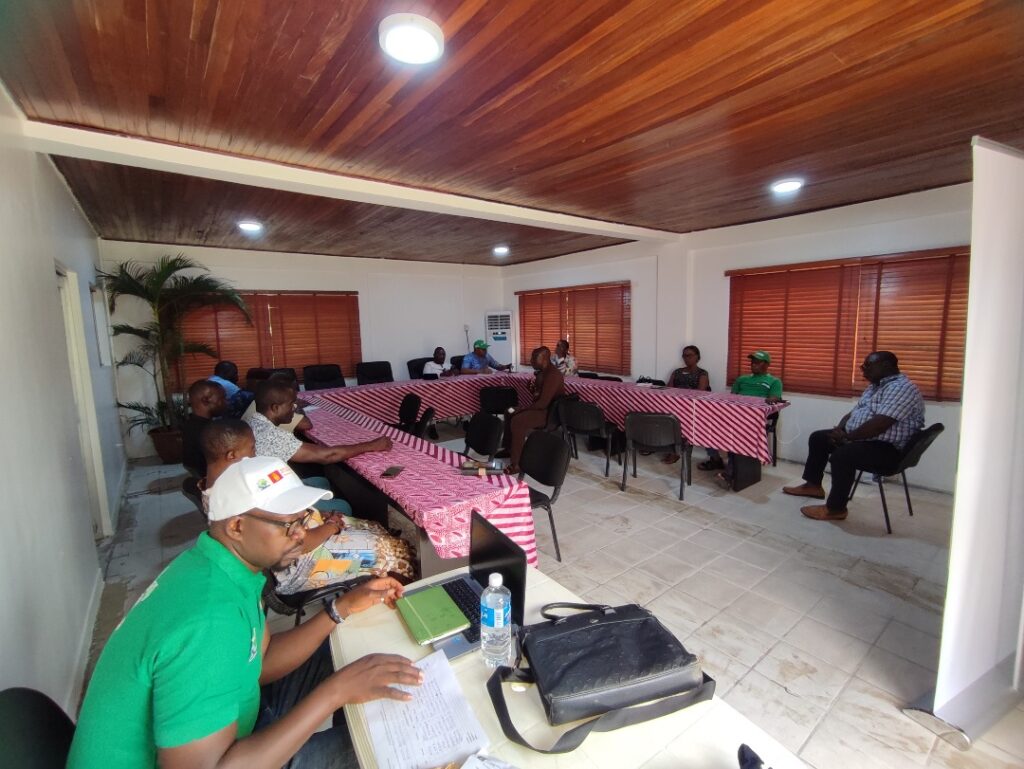
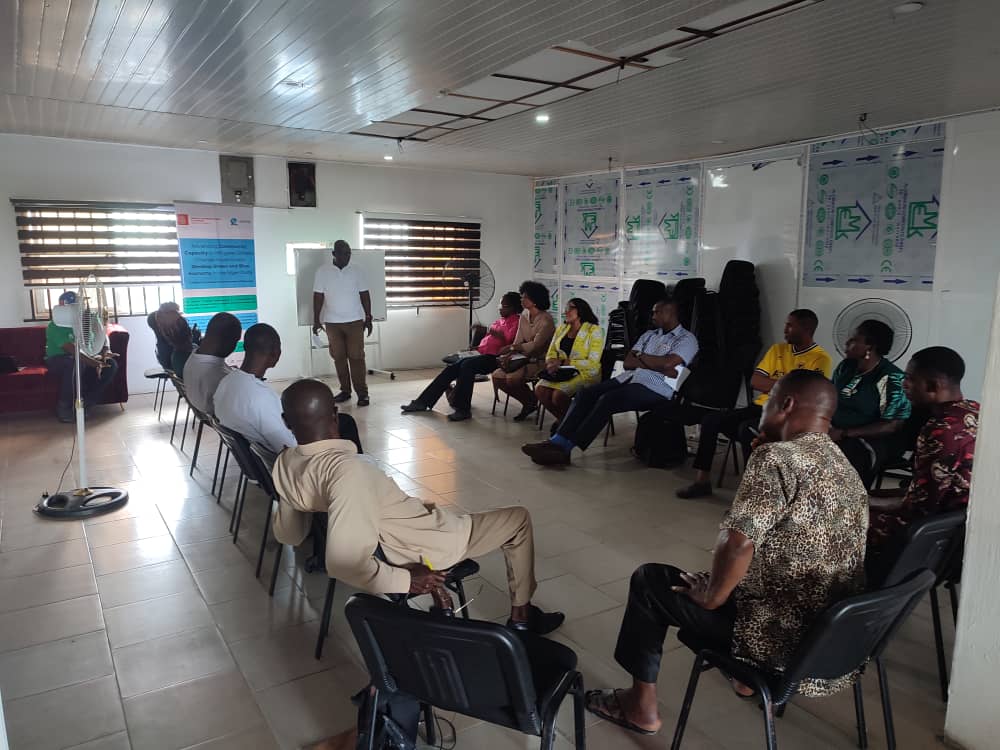
The network identified the need to facilitate “environmental by-laws” to strengthen community protection against environmental degradation. In particular, the Bayelsa Excessive Fisheries Bill was a focal point of discussion. This bill stipulates that trollers and large fishing boats must operate beyond 200-knot miles offshore, covering creeks, rivers, and oceans, which will protect local fish stocks and biodiversity. In Delta State, the government’s involvement in a blue partnership was highlighted.
Looking ahead, the network members discussed a series of proposed training topics ranging from biodiversity management and conservation to renewable energy and green technology, designed to empower community members further. These topics reflect the evolving needs of the communities as they confront climate-related challenges and transition to more sustainable practices. Additionally, the network plans to cover crucial areas such as advocacy and training of community outreach/extension agents to ensure that environmental messages and sustainable practices reach the grassroots effectively.
In the long term, the “Advancing Community Capacity to Mitigate Climate Change and Develop Green and Blue Economy” project, funded by the Government of Denmark, aims to build resilient, self-sustaining communities capable of adapting to climate change. By fostering a green and blue economy, the project envisions a future where communities can sustainably manage their natural resources, create green jobs, and reduce their environmental footprint.
As the project progresses, the collaborative efforts of this network will continue to drive tangible change, ensuring that communities in Bayelsa and Delta states are well-prepared to face the environmental challenges of tomorrow.


